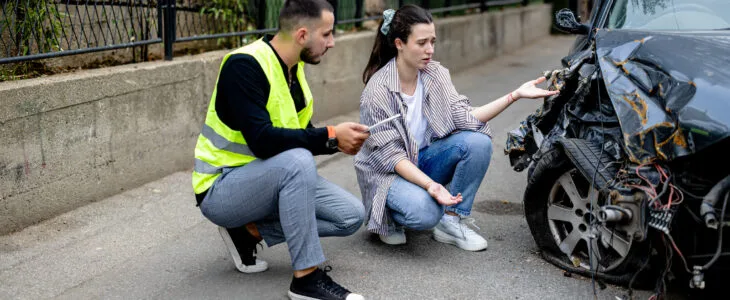Car accidents can happen in an instant, leaving you with questions, stress, and uncertainty about what to do next. In these moments, the decisions you make can have a big impact on your health, financial well-being, and recovery. It’s natural to feel overwhelmed, but taking the right steps can help protect your rights and your future. Whether you’re dealing with:
- injuries,
- property damage,
- or insurance claims,
staying informed and prepared can make all the difference in how you move forward after a collision.
Failing to Report the Accident
One of the most common mistakes people make after a car accident is not reporting it to the police. Even if the accident seems minor or there are no obvious injuries, it’s always a good idea to call the authorities. An official police report creates a neutral record of the incident, including details about what happened, who was involved, and any damages. This documentation can be critical if questions or disputes arise later.
Failing to report an accident can lead to significant problems. For instance, if the other driver changes their story or denies fault, you may have little evidence to support your claims. Your insurance company may also require a police report to process your claim. Taking the time to contact the police at the scene protects your rights and ensures the facts are properly recorded.
Not Seeking Immediate Medical Attention
After a car accident, it’s tempting to assume you’re fine if you don’t feel immediate pain. However, skipping a medical evaluation is one of the biggest mistakes you can make. Many injuries, such as whiplash, concussions, or internal damage, may not show symptoms right away. Adrenaline from the accident can also mask pain or discomfort. By delaying treatment, you risk worsening your condition and making recovery more difficult.
Seeking medical attention promptly is not only important for your health but also for protecting your legal rights. Medical records provide evidence linking your injuries to the accident. If you wait days or weeks to see a doctor, it may raise questions about whether the accident caused your injuries. A quick checkup ensures that you address hidden issues early and strengthens your case if you need to pursue compensation.
Admitting Fault or Apologizing
In the aftermath of an accident, it’s natural to want to apologize or express sympathy. However, saying “sorry” or admitting fault—even casually—can work against you. These statements can be interpreted as accepting blame, which might impact your ability to recover compensation later.
Instead, focus on staying calm and exchanging necessary information with the other parties involved. Avoid discussing who was responsible until the investigation is complete. By sticking to the facts and letting the proper authorities determine fault, you protect yourself from unnecessary complications.
Neglecting to Collect Evidence at the Scene
Failing to gather evidence after a car accident can leave you without the information you need to support your case. The scene of the accident holds valuable details that may not be available later. Take photos of the vehicles, the surrounding area, and any visible injuries. Be sure to capture road conditions, traffic signs, and skid marks, if present. Exchange contact and insurance information with the other driver and ask for names and numbers of witnesses.
If you’re unable to collect evidence due to injuries, ask someone you trust to help. Even a few photos or statements can make a significant difference when filing insurance claims or pursuing legal action. Acting quickly ensures you preserve details that could strengthen your case.
Speaking to Insurance Adjusters Without Legal Guidance
After an accident, you may receive a call from an insurance adjuster asking for details or even a recorded statement. While it might seem like a routine step, speaking to them without legal guidance can lead to unintended consequences. Insurance companies aim to minimize payouts and may use your words against you, even if you’re simply trying to explain what happened.
Avoid signing documents or agreeing to a settlement before understanding your rights. Some offers may seem fair at first but fail to account for future medical expenses or other losses. Before speaking to an adjuster, consider consulting with a personal injury attorney who can help protect your interests and ensure you receive the compensation you deserve.
Take the Right Steps After an Accident in Phoenix, Buckeye and West Valley, AZ
Avoiding common mistakes after a car accident can protect your health, rights, and financial future. By staying informed and cautious, you set yourself up for a smoother recovery process. If you’ve been in an accident, we’re here to help. Contact Gill Law Firm today for a free consultation, and let us guide you through your next steps.
